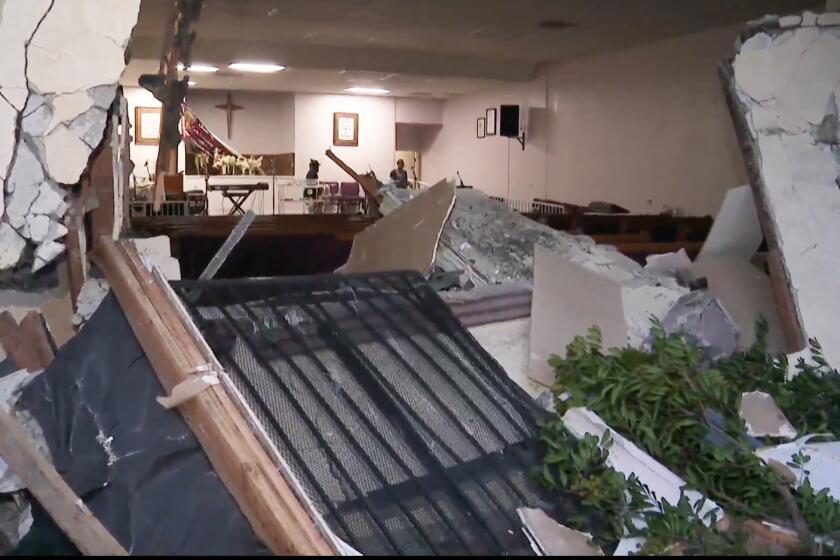CULVER CITY : Builder Loses Appeal Over Traffic Fees
A Culver City real estate development firm has lost its battle with the City Council for the return of $103,000 in fees it paid to offset the traffic impact of a project it later abandoned.
After months of haggling, the council voted to reject the claim by Bull Moose Development Co. that the city did not spend the company’s money for traffic mitigation projects within the time allowed by city ordinance.
“This is outrageous,” said Richard Leavitt, attorney for Bull Moose. “They are violating their own code.”
The ordinance says the city has seven years to spend developers’ mitigation fees on street improvement projects related to the development, according to Mark Ambrozich, city accountant. If the money is not allocated, the city is required to return it.
But city officials say the money belongs to Culver City because it was allocated for a related traffic-improvement project. City Atty. Norm Herring also said Bull Moose waited too long to appeal.
In 1988, Bull Moose bought property at the corner of Slauson Avenue and Jefferson Boulevard to develop a self-storage facility. At the time, it also paid the mitigation fees required for street improvements needed for the development, Leavitt said.
Soon after Bull Moose paid the fees, the developer sold the property to Shurgard Storage Center, which built the storage facility. Part of the sales agreement was that Bull Moose would pay the fees, Leavitt said.
But Bull Moose did not expect the city to spend the money because only five to 15 cars a day go in and out of the storage facility, Leavitt said. “We paid the fee figuring that there would be no traffic problem and we’d get the $100,000 back in seven years.”
Instead, the city combined the fees paid by Bull Moose with fees paid by other developers and spent the money in 1994 to build a connector road between Jefferson and Sepulveda boulevards, Herring said.
In the same area is a Target department store, a Pavilions supermarket, a Blockbuster video store, the main Culver City branch of the U.S. Postal Service and a Coco’s restaurant.
Leavitt said the other nearby developments create more traffic than the storage facility.
“They took the money without even looking at the particular impacts of any one development,” he said.
City officials, however, said the issue is not whether one development creates more traffic than another, but the cumulative effect of the projects.
More to Read
Start your day right
Sign up for Essential California for news, features and recommendations from the L.A. Times and beyond in your inbox six days a week.
You may occasionally receive promotional content from the Los Angeles Times.






